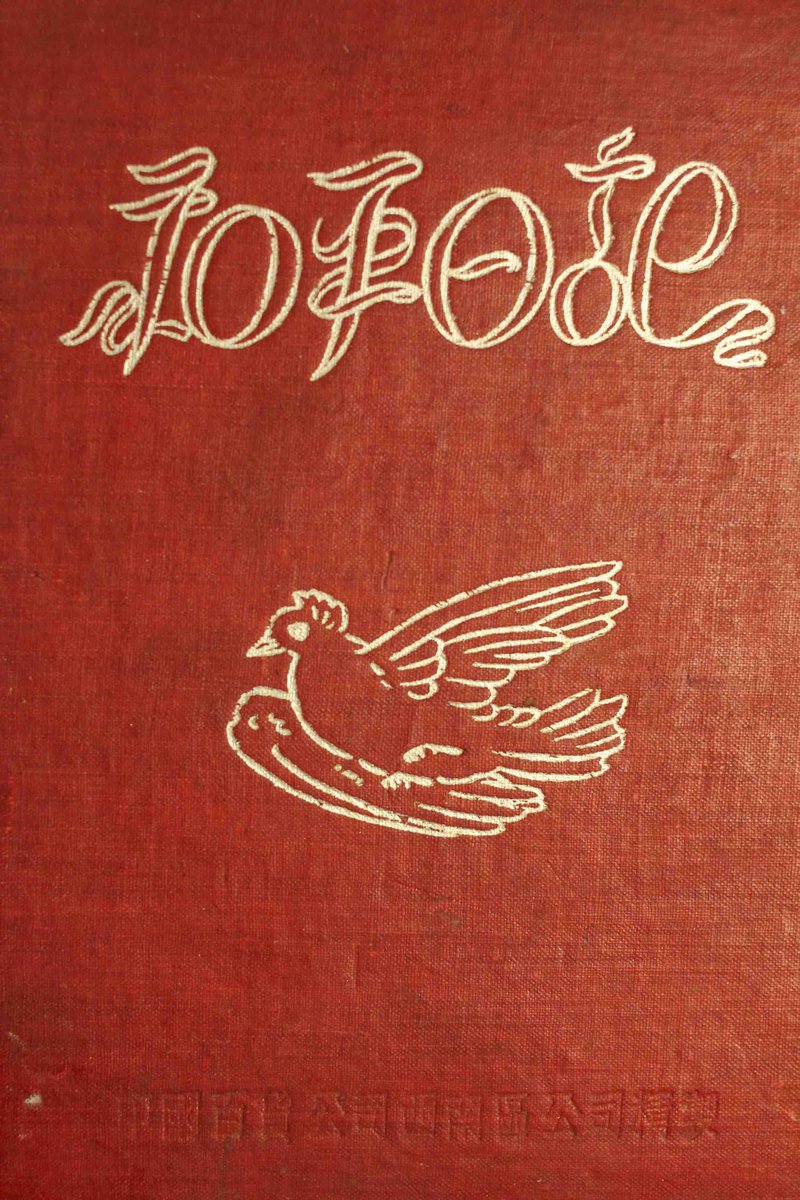⧉Image Personal Diaries: Peace Diary

- Title
- Peace Diary (Heping riji 和平日记)
- Date
- 1952
- Creator
- Anonymous
- Publisher
- N/A
- Rights
- Personal Collection. Courtesy of Aaron Moore (translation).
- Description
This diary comes from a junk shop in Chongqing. It was published as a blank diary in 1952 by Huafeng Publishing (华丰印制, Chongqing), which had become a joint operation of the pre-revolutionary private company and the new PRC government. The author began inscribing it in 1953, wrapping it up in 1964. The title refers to the ongoing Korean War, and the 1950 World Peace Council. The author was a construction engineer in Yunnan Province (云南省) who built bridges for the railway links into Vietnam, and then for the Transport Department building roads and working with quarries. His diary begins with this entry:
‘In 1953 New China’s First Five Year Plan began. Under the banner of the Communist Party and Mao Zedong we will resolutely hold our position, analyse the situation between us and the enemy, and resist to the end anyone who might bring harm to the interests of the people. We will faithfully fulfil our duties given to us by those in command and complete our work.
From January to April 1953 I was involved in bridge construction for the Dian-Yue [Yunnan-Vietnam] Road. On 10 April I moved to the Kunming Municipal Transport Department, and began work [on various bridges] … the quality of the materials was poor, and it was not easy to ensure labour safety. During this process I developed many problems in my thinking, but through this period of difficulty we basically finished [the projects]. Once traffic was moving through, I was finally able to reject all of my incorrect thinking (bu zhengque sixiang 不正确思想). [One month later] the entire section was put under review (jianding 鉴定), and we started to study the process of thought appraisal (sixiang jianding 思想鉴定) and critical autobiography. At this time I conducted daily studies late into the night … [In my next project] I once again had incorrect thoughts … [but] this time I swore I would do a good job, and discovered I had not fully investigated my thinking.
Problems I Discovered During My Thought Appraisal
- In May 1953, when I moved from XX Transport Department to the XX Section of Southern Yunnan Transport, my spirits were very high. On XX date, I was very happy to receive my order of works.
- After getting my order of works, I did my job in the daylight hours, and in the evening even helped with office task, wrapping up the necessary jobs proactively.
- But we didn’t do things according to the specifications, and the construction didn’t adhere to standards nor were proper inspections carried out … Regarding worker safety, our attempts to educate by explaining safety were inadequate. Although we didn’t do things according to standard or specification during this period of difficult works, we fulfilled the plan and completed our duty.
Daily Affairs (shenghuo 生活)
- I’m not lazy. Any work that needs doing I want to do right away.
- I keep things simple.
- Sometimes I don’t think through what I say. It’s easy to blame others. There are two kinds of ways to speak with a bad attitude: one is to praise one’s own intelligence, be proud and haughty, point to one’s own achievements, to speak of other’s faults, to be self-satisfied and stink of arrogance, which makes for a very impolite person; the other kind of bad attitude is to be overly polite.
Thought (sixiang 思想)
- Ever since [I began thought work], there have been lots of bad thinking on my part … This is like getting your work orders [in transport construction], when you’re estimating elevation or soil quality, and whether you can’t be sure if you’ll do the job properly. When worker safety is insecure, you fear there will be many accidents.
- I don’t fully understand personnel issues … Despite the faults and errors in my thinking above, I am always conducting a struggle against my thought enemies and have corrected my ideological errors. Reduce the missteps, but no matter how many or how few, bad thoughts are always there.
- The plague of self-doubt: whether it’s labour or higher level work, I always feel dissatisfied, so the feelings of doubt creep up. So I use thought [work] to investigate and examine every aspect, from how I work to how I speak. I’ll pursue this investigation until I reach the origins of this sickness.’